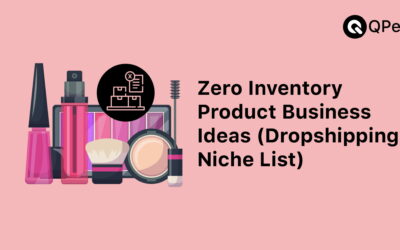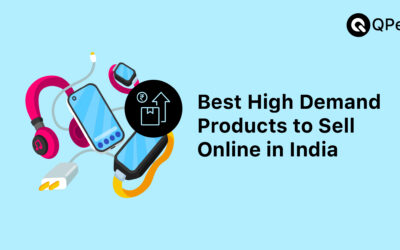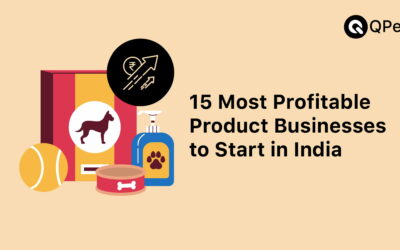Direct-to-Consumer (D2C) has become one of the fastest-growing business models in India over the past few years. Brands no longer just count on markets like Amazon and Flipkart since millions of people shop online. They are instead creating their own online stores, communicating directly with customers, and controlling the way people experience their brand. It is more important than ever to pick the Best ecommerce platforms for D2C India so that this can happen.
As we move into 2025, there is a lot of competition between e-commerce platforms. Each one has its own features for marketing, payment connection, and being able to grow. We will talk about the best sites for D2C brands in India and what makes them stand out this year in this blog.
Why D2C Brands Need the Right Ecommerce Platform
Before you look at the list, you should know why the site you choose can make or break your D2C business.
- Brand Control: You can decide how your brand looks and feels on a shopping site, but not on a marketplace.
- Customer Data: Platforms let you see information about your customers directly, which helps you make more targeted ads.
- Scalability: Your D2C brand requires a system that can handle increased traffic and a larger product list as it expands.
- Integration: Ecommerce systems should make it easy for your payment methods and marketing tools to work with your other tools.
That’s why every founder and business owner needs to carefully choose the Best ecommerce platforms for D2C India.
Best Ecommerce Platforms for D2C Brands in India (2025 Edition)
In 2025, these are the top e-commerce sites that are driving India’s direct-to-consumer (D2C) revolution:
1.Shopify
Shopify still rules the direct-to-consumer (D2C) e-commerce market in India thanks to its ease of use and global reach. People who want to start their own business online often choose this as their first option.
Key Features:
- Drag-and-drop store maker that’s easy to use
- Several payment options
- Themes and apps around the world
- Experience on mobile first
Pros:
- Easy set-up
- A lot of group help
- Very good data
Cons:
- High fees for transactions
- Customisation is limited unless you pay a lot for a plan.
As D2C businesses in India grow, many are also looking for Shopify alternatives for D2C brands that are cheaper and better fit the needs of the Indian market.
2. WooCommerce
WooCommerce, an add-on for WordPress, can transform any website into a fully functional online store. WooCommerce is a choice for brands that want full control over how their products are customised.
Key Features:
- It is free to run and open-source.
- Multiple SEO, payment, and shipping tools can be used.
- Both small and large businesses can utilize it.
Pros:
- Customizable and easy for developers to use
- A lot of people and apps in the group
Cons:
- Needs expert know-how
- Host fees, apps, and upkeep can make costs go up.
3. QPe
A lot of D2C brands want a current option that works in India first, and QPe for D2C has become common in 2025. It was made to meet the needs of Indian companies and has both powerful and affordable features.
Key Features:
- Store builder driven by AI
- Integrations with local payment gateways
- Tools for social selling and doing business on WhatsApp
- Built-in tools for marketing
Pros:
- Set up to sell in India.
- Models of affordable prices
- A lot of attention on mobile shopping
Cons:
- Compared to world giants, it is still growing.
- A few third-party connections around the world
Because it directly addresses issues that Indian business owners face, like COD handling and regional language support, QPe is quickly becoming one of the Best ecommerce platforms for D2C India.
4. Wix eCommerce
Wix is known for having an easy-to-use website builder, but in the last few years, its shopping option has gotten better.
Key Features:
- Beautiful designs and a drag-and-drop maker
- AI to help with design.
- Marketing and SEO tools that work together
Pros:
- Exactly what clever D2C brands need
- Low-cost deals
- Easy to use, no code needed
Cons:
- Large shops may not be able to grow easily.
- Low-level plans have transaction fees.
5. Magento (Adobe Commerce)
Magento is a suitable choice for D2C businesses that require enterprise-level solutions and are experiencing rapid growth. It’s backed by Adobe and made for customisation and big collections of products.
Key Features:
- Better handling of products
- Personalisation and suggestions based on AI
- Strong protection and the chance to grow
Pros:
- The best for big businesses
- A lot of power and flexibility
Cons:
- Setting up and maintaining it costs a lot.
- Needs a skilled team of developers
6. Instamojo
It began as a payment method, but now Instamojo is an all-in-one online tool for Indian businesses that sell to consumers.
Key Features:
- Create a store right away.
- Bringing together payment and logistics
- Help for digital goods and services
Pros:
- Cheap for new businesses
- A few steps are needed to set up
Cons:
- A few changes can be made.
- Maybe not the best for big businesses
7. BigCommerce
BigCommerce is another foreign platform that competes with Shopify very hard. It works great for D2C brands that want to grow quickly and need advanced features without depending too much on apps.
Key Features:
- Selling on more than one platform (Amazon, eBay, social media)
- Tools for SEO and marketing built right in
- Large and medium-sized businesses can use it.
Pros:
- Strong features right out of the box
- No fees for transactions
Cons:
- Hard for beginners
- Prices are higher than on smaller sites.
Things to think about before choosing a platform
Here are the most important things to think about when looking at the Best ecommerce platforms for D2C India:
- Ease of Use: Can the tool be set up quickly without having to know how to code?
- Customisation: Is it possible to make your store look like no other store does?
- How much does it cost? Does it fit your budget, especially if you want to grow it over time?
- Handle for Indian Payment Gateways, Logistics, and Taxes: Does the site handle these things?
- Scalability: Can the platform handle more users and the growth of new markets?
The Future of D2C Ecommerce in India
India’s e-commerce market is expected to be worth more than $200 billion by 2030, which means that D2C brands have a lot of chances to make money. Platforms that put mobile first, support regional languages, and connect to social business will be the ones to beat.
Now is the time for brands to get the right D2C ecommerce solutions. In five years, they will be better prepared to grow quickly. It doesn’t matter if you choose a global giant like Shopify or BigCommerce or an India-first platform like QPe or Instamojo. What matters is that the strengths of the platform match your business goals.
Last Thoughts
In 2025, selecting the right technology partner is crucial for the success of a direct-to-consumer business in India. The Best ecommerce platforms for D2C India don’t just sell goods anymore; they make the whole shopping experience better for the buyer. Platforms today give brands the tools they need to compete globally while staying connected locally. These tools include flexible design options, payment options, and marketing tools.
Platforms like Shopify, WooCommerce, Wix, and Magento will continue to grow as the market changes. However, India-focused players like QPe and Instamojo are changing the game for businesses that want solutions that are tailored to their needs. With so many top ecommerce platforms 2025 to choose from, it all comes down to the long-term growth plan, goal, and budget of your brand.
If you are an Indian D2C founder, take the time to look at your choices, try out the platforms, and choose the one that works best for your business. It could be very important for the growth of your business.



